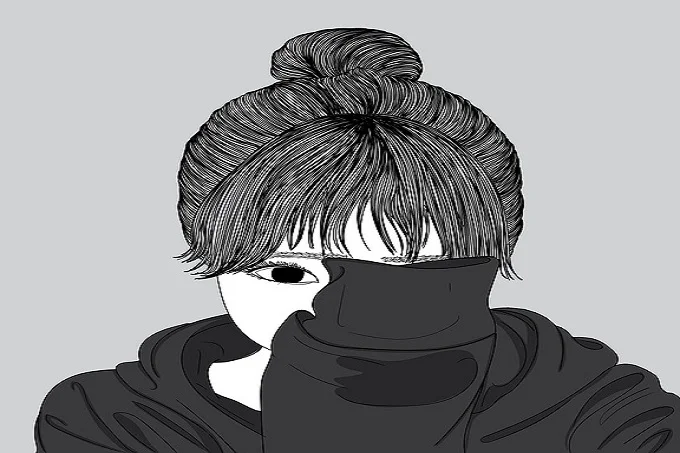14 signs you have an avoidant attachment in a relationship and how to overcome it

Do you find it tough to connect with others for reasons you don’t understand? Or do you run away from people before they get to know you? It’s possible that the avoidant attachment style is to blame for everything.
We try to form connections with others since it is an inevitable characteristic of our existence; nevertheless, each of us does it in our unique way.
What is an avoidant attachment in a relationship?
According to John Bowlby and Mary Ainsworth’s attachment theory, we act in relationships in one of three ways: secure, avoidant, or anxious.
Approximately 60% of persons employ secure attachment, 20% use an anxious attachment, and 20% use an avoidant attachment. To get the latest stories, install our app here
As a youngster, you are influenced by your relationships and how you relate to people. If your emotional needs were disregarded as a youngster, you could grow up to be an avoidant child, and this attachment style followed you into adulthood.
When one or both of the child’s parents are habitually emotionally unavailable or indifferent to the child’s needs, avoidant attachment develops. To get the latest stories, install our app here
This might be due to a lack of understanding of how to help a kid, a lack of empathy, being overburdened by parenting obligations, or the parents’ own avoidant attachment style. Furthermore, such youngsters may have been forbidden from sobbing or expressing their feelings. Over time, they retreat from their needs and emotions, learning to comfort themselves, losing confidence in others, and refusing to seek help and support from others.
They become pretty self-sufficient as adults, both physically and emotionally.
If you have an avoidant attachment style, it will affect your adult life, including friendships, professional ties, and romantic relationships.
Signs of avoidant attachment in relationship

Here are some signs that you’re an avoidant attachment style:
1. Avoids commitment
A person with an avoidant attachment style avoids making long-term plans or discussing the relationship’s future. When asked what he wants, he may be elusive and provide unclear responses. To get the latest stories, install our app here
If you’re arranging a vacation or activities to help you grow closer, he could say it’s a fantastic idea, but then change the topic or refuse to make any further preparations.
For fear of being left first, such a person would frequently try to stop the relationship or leave the partner.
2. Healthy relationships are not satisfying
Even though things might go quite well, an inner desire to ruin current relationships is one of the signs of the avoidant type.
Upset, immature, overly critical, or fussy, the person may purposefully drive a relationship away. To get the latest stories, install our app here
The better you get to know him, or the more you desire to be in a serious relationship with him, the more he will distance himself from you, agreeing to meet or interact with you less often.
3. Pays more attention to the past than the present

Past relationships might be cherished by an avoidant personality type. He may dream about an ex-lover, giving the impression that the relationship is still going on.
A person who wants to build a relationship with him gets the idea that the past relationship is still going on, which is why the partner isn’t totally present in the current one.
4. Too independent
Your avoidance partner likes to assume that there is nothing he can’t manage independently, regardless of what transpires between you.
He will often speak of independence and freedom rather than closeness and aim for self-sufficiency rather than mutual help. Such a person avoids intrusive partners and tries not to be imposed himself. To get the latest stories, install our app here
He believes he has no one but himself to depend on. At crucial times, he isolates himself and attempts to handle things on his own.
5. Problems with trust
The avoidant personality has a hard time trusting others. He could be too suspicious, concocting the worst-case scenario and misinterpreting your behaviours, fearing you’re trying to take advantage of him or restrict his independence.
6. Gives conflicting signals

The avoidant type keeps a safe distance by giving out conflicting signals, moving away and then closer, only to turn you off again.
His words may differ from his actions, which frequently confuse the companion.
7. He keeps his plans to himself
A person who has an avoidant attachment style tends to make choices on his own, without consulting a partner, even if they are important to him. To get the latest stories, install our app here
This might be regarding a combined trip, money, job, or general plans, which he only tells her about when it’s too late to change. This kind of individual is addicted to secrecy.
8. Stingy to demonstrations of affections and emotion
He may be stingy with love and emotional expressions or only display it at intimate moments. However, even this avoidant type will provide very little as the relationship progresses.
A person will rarely express feelings, declare he loves you, and do so without much emotion.
9. Sets the rules
The avoidant partner may impose strict standards in some cases, refusing to bend.
He’ll say that some things are more important to him than relationships, such as career, independence, or family. To get the latest stories, install our app here
Such a person may set specific criteria at the start of a relationship, such as saying he would never marry, will not give up his independence, and will not live together.
10. Maintain a safe distance
The behavior of maintaining a certain distance with a partner all of the time is one of the clear signs of avoidant attachment in men and women. To get the latest stories, install our app here
When you wish to talk about your relationship problems, he may actively avoid replying or threatening to leave if your feelings are serious.
11. Selective
In a relationship, an avoidant personality type may complain or criticize a partner’s flaws. The standard set might be so high that meeting all of the criteria of a partner, as well as any other person in their life, becomes almost impossible. To get the latest stories, install our app here
Instead of concentrating on the good aspect of the relationship, such a person will concentrate on what might be better and what is not perfect, weakening feelings and impeding the partnership’s progress.
12. Lack of communication
When they leave or come late, the individual may restrict talks or daily interactions, feel irritated by offers to write or call when they leave or arrive late.
He may seem nervous or uncomfortable while discussing emotions and relationships.
13. Does not know how to express emotions
An avoidant spouse may fail to recognize your feelings or rarely express them. He may not know how to communicate about problems or feelings.
Instead of giving support or comfort, he may attempt to analyze your feelings or label you as too sensitive if you are emotionally overreacting. To get the latest stories, install our app here
Because they rarely express their feelings, the avoidant type will look cold, unfeeling, and rude.
14. Unreachable

It seems like there is always something more important than a spouse in such relationships. When the avoidant type is alone, he may fantasize about the freedom he might have.
He enjoys freedom and desires to make his own choices without reporting to anybody.
How to overcome avoidant attachment style
If you or your partner shows signs of avoidant attachment, you must determine if you are prepared to put up the work necessary to correct the problem.
To go over this issue, you may need to contact a psychologist. It’s also important to keep in mind the following:
Both men and women have the avoidant personality type.
1. Allow your partner to be free and independent
The avoidant personality requires a lot of personal space to explore his hobbies or prioritize his priorities. He won’t feel the need to draw away if he senses you aren’t attempting to take his time or demanding too much of him. Allow him the option to return if this occurs.
2. Remember that avoidance is not directed at you personally
This sort of behaviour is linked to a past psychological condition that he brought into the relationship. He may or may not be aware of it. To get the latest stories, install our app here
When your spouse attempts to convey sentiments or speak about concerns, try to listen with compassion. Because the avoidant spouse is incredibly independent, don’t attempt to repair it; instead, be attentive and receptive to their needs.
3. Try to listen
Understand when your partner tries to express feelings or talk about problems. Don’t try to fix it, as the avoidant partner is extremely independent, but be caring and responsive to needs.
4. Set healthy boundaries
It is good to set boundaries early in the relationship that both of you should respect. Some things may be acceptable, and some may not. This must be understood.
5. Accept and appreciate the differences you have with one another
Learn to appreciate your partner even with his differences; this will make the relationship to be going with ease without hassle. To get the latest stories, install our app here
Regardless of past negative experiences, a person with an avoidant attachment style may find and maintain healthy relationships if both partners are ready to work on themselves and the relationship.




